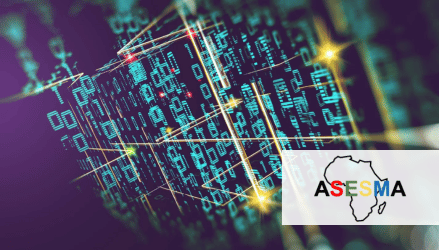ASESMA 2025: a new approach
ASESMA 2025 is set to reinforce Africa’s role in global scientific research. Attendees can contribute to the future of science in Africa.

References and further reading:
The upcoming African School for Electronic Structure Methods and Applications (ASESMA) in 2025 marks an exciting evolution in the program’s history. Unlike previous editions, ASESMA 2025 will introduce an online “Pre-school” starting on 20 February, leading up to the in-person main school in Accra, Ghana, from 9-20 June 2025. This blended format is designed to make learning more accessible and to better prepare new participants for the intensive training offered during the main school. A New Approach: The Online Preschool The introduction of an online component aims to broaden participation and ensure that students and young researchers across Africa have an opportunity to engage with the subject matter ahead of time. The virtual lectures and interactive Q&A sessions will help familiarize newcomers with fundamental concepts while reinforcing knowledge for returning participants. This initiative reflects the growth of the ASESMA community and its commitment to expanding opportunities for education and research collaboration across the continent.
The In-Person Main School in Accra The in-person school in June will retain ASESMA’s signature format of lectures, hands-on computational tutorials, and collaborative projects. However, with the foundational knowledge established in the Preschool, the school can now cover a broader range of topics and delve deeper into specialized research areas. This expanded approach is made possible by the increasing number of active researchers in Africa, contributing to the long-term vision of strengthening computational materials science networks on the continent. A Legacy of Scientific Development in Africa Since its inception in 2008, ASESMA has become a cornerstone in the advancement of computational materials science in Africa. Held biennially in different countries, the program has built a thriving community of researchers who specialize in atomistic simulations and electronic structure methods. By bringing together scientists from physics, chemistry, and materials science, ASESMA fosters interdisciplinary collaboration and global networking, ensuring that African researchers are integrated into the broader international scientific community.
Materials science plays a critical role in Africa’s development, given the continent’s vast mineral resources, energy potential, and biodiversity. Advances in this field hold significant promise for economic growth, technological innovation, and environmental sustainability. ASESMA contributes to these efforts by training scientists in computational techniques essential for applications such as renewable energy, environmental remediation, catalysis, and biochemistry. These areas are crucial for addressing challenges like clean water access, energy sustainability, and disease treatment—issues of paramount importance across Africa. Building Research Networks and Opportunities A key strength of ASESMA is its emphasis on long-term research collaboration. The school’s alumni continue to engage in scientific exchanges through ASESMANET, a network that facilitates intra-Africa and Africa-Europe collaborations. Since 2019, ASESMANET has supported 24 research visits within Africa, nine Africa-Europe exchanges, and participation in international conferences. These initiatives enhance scientific knowledge and strengthen research communities across the continent.
ASESMA has received international recognition and support from organizations such as the Abdus Salam International Centre for Theoretical Physics (ICTP), the International Union of Pure and Applied Physics (IUPAP), the U.S. National Academy of Sciences, the National Science Foundation (NSF), CECAM, NCCR-MARVEL, and the Thomas Young Centre. The program was initially endorsed by IUPAP for a decade (2010-2020) and has been renewed for a second decade (2020-2030), reflecting its success in fostering scientific excellence in Africa. Online Pre-school (February – April 2025) Starting in February, a series of online lectures will introduce key topics in computational materials science. Active participation in these sessions will be an important criterion for selection to the in-person school in June. Lectures will be conducted live via Zoom at 15:00 SAST and recorded for later viewing.
In-Person Main School (9-20 June 2025) During the two-week program in Accra, participants will engage in: ASESMA’s approach ensures that participants leave with both theoretical knowledge and practical experience, enabling them to contribute effectively to research in their home institutions. Looking Forward: The Future of ASESMA ASESMA’s impact extends beyond individual schools—it is fostering a new generation of African scientists who will drive innovation and collaboration in computational materials science. The program’s success has led to regional workshops and specialized training sessions, further strengthening the scientific landscape in Africa. For more information about ASESMA 2025, application details, and ASESMANET activities, visit www.asesma.org.
